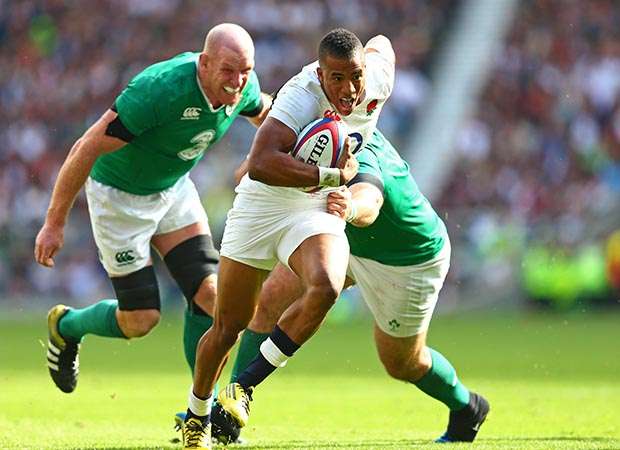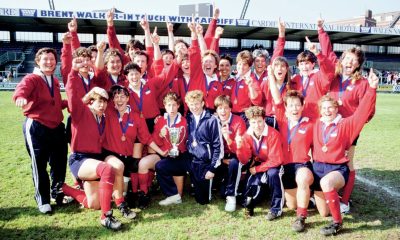

They needed to step up and their anger now needs to be directed at the fact that they should have been home and hosed at half-time and they badly need to be clinical at try time and cut out forward passes as it appears that they are finally going to be refereed properly.
What yesterday really showed though is that elite sport is all about winning today, not promising the earth tomorrow. It’s difficult enough controlling the present in sport let alone the future and that’s why Andrew’s comments stuck such a discordant note.
They came, of course, from the man who had a very large part in the appointment of both Martin Johnson and Stuart Lancaster as England coaches and it all smelt horribly of getting your excuses in first and the covering of one’s posterior.
England need more time to truly fulfil their potential etc, there’s a great generation coming through etc etc. We’ve heard it a hundred times before and every time it rings hollow. Everybody wants more time although strangely it is usually those basking in the luxury of lucrative long-term contracts that argue the case strongest.
To be honest, I’d like more time occasionally to write some of my feature articles and match reports but the reality of deadlines is that frequently I’ve got less than an hour to somehow craft 1,500 words or more.
England’s deadline is September 18, 2015 and they’ve known that since July 28, 2009, when they were awarded the 2015 World Cup.
There is no conceivable excuse on this planet for this current England group not peaking over the coming weeks. They might not be good enough but that’s another issue altogether but as long as this group peak during their RWC2015 campaign there will be no shame.
A few facts. Yesterday was England’s 42nd Test since Stuart Lancaster took over. During that time they have contested four Six Nations tournaments and staged ground-breaking three-Test tours of South Africa and New Zealand.
And, although he took over in strained circumstances, England were hardly rugby minnows or no-hopers. The much-derided class of 2011 were in fact the reigning Six Nations champions and an England U20 team including Mako Vunipola, George Ford, Owen Farrell, Joe Launchbury, Christian Wade, Elliot Daly and many others had just run New Zealand very close at the Junior World Cup. Most coaches in the world would kill for that platform.
And why this conviction that winning the World Cup must be a long process and winning teams need to average 669 caps, and England are at a significant disadvantage because yesterday’s starting XV had only a paltry 439? New Zealand didn’t win in 2011 because of their massive experience, they won because the potential shame and disgrace of not triumphing on home soil energised a side that was beginning to underperform. It was the future challenge that energised them.
In 1994, just two years back into the sport, South Africa were a shambles and had won only five of their 17 Tests before Kitch Christie was appointed as coach a mere eight months before the World Cup. He possibly would have wanted more time but, as a businessman, also knew that intense pressure and the urgent need to deliver is also a wonderful galvaniser.
When South Africa ran out against New Zealand on June 25, 1995 they had just 178 Test caps between them. Opposition hooker Sean Fitzpatrick had way more caps (68 at the time) than the entire Springboks front-five.
Experience, long years spent seeking that elusive peak, were not part of the equation. South Africa’s youngish team had the mind-set of ‘now or never’ and that carried the day gloriously. In fact that was their solitary moment. As a XV they hardly ever played together en bloc.
So, please, no more of this peaking somewhere down the line twaddle. England will always have an endless supply of outstanding talent and that is not down to Stuart Lancaster or anybody else. Two of the best teams I have ever seen were the England U21 team of 1993 (Dallaglio, Dawson, Catt, Hill etc) and the 1997 England schools team (Wilkinson, Tindall, Balshaw etc).
That is not the issue. The future is not the issue, getting great players to perform right now is paramount and there are signs that Jonny May, Anthony Watson and others appreciate that and are beginning to come to the boil nicely. Next stop Fiji.































You must be logged in to post a comment Login